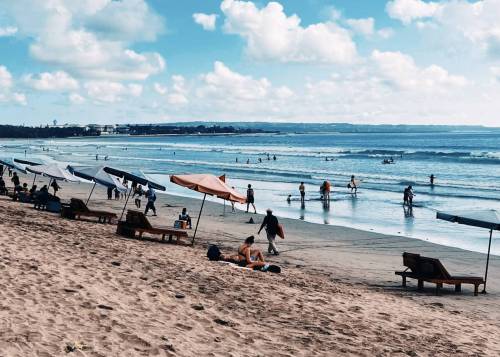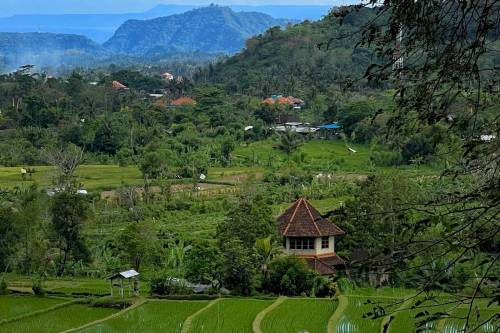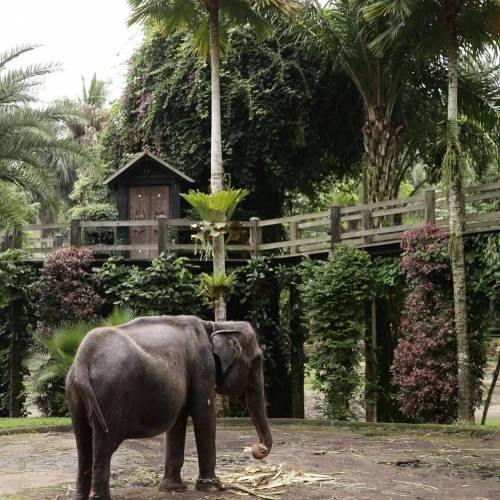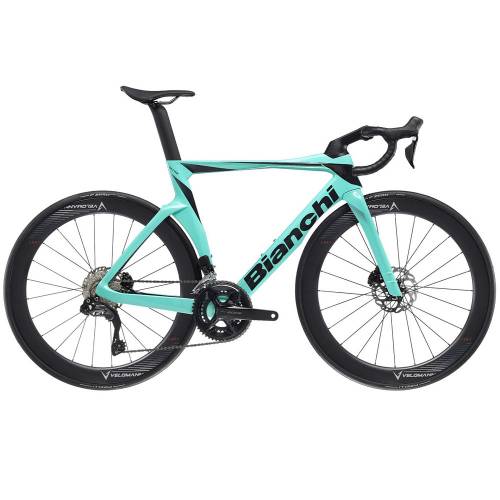In the ever-evolving landscape of global travel, two destinations have consistently captured the hearts of tourists and expats alike: the enchanting island of Bali in Indonesia and the diverse kingdom of Thailand. Each with its own unique allure, these tropical paradises offer a kaleidoscope of experiences, from serene beaches and lush landscapes to vibrant cultures and bustling cityscapes. In this comprehensive article, we embark on a journey to explore and compare Bali and Thailand across various criteria, aiming to provide you with an insightful guide on where you might find your next unforgettable adventure.
We'll delve into the natural beauty of both locales, contrasting Bali's iconic rice terraces and sacred forests with Thailand's stunning beaches and historic ruins. Our journey will take us through the bustling markets and tranquil temples, exploring the rich cultural tapestry that defines both regions. From the flavors of local cuisines to the rhythm of nightlife, each destination offers its own unique set of experiences.
But it's not just about the picturesque landscapes and cultural experiences. We also examine practical aspects like accommodation options, transport facilities, and the all-important topic of visas – essential information for tourists and expats considering a longer stay. Whether you're a digital nomad seeking a new base, a traveler in search of culinary adventures, or someone looking to immerse in a new culture, our comparison will shed light on what Bali and Thailand have to offer.
So, join us as we navigate through the charm and challenges of these two Asian gems. Whether you're drawn to the spiritual tranquility of Bali or the dynamic energy of Thailand, our comprehensive comparison aims to help you make an informed decision for your next journey. "Comparing Bali and Thailand: Where is the Best Place to Go?" isn't just a guide; it's a gateway to discovering your personal paradise.
Nature in Bali
Beaches and Ponds
Bali is celebrated for its captivating beaches, each offering a unique charm. From the bustling, surf-centric shores of Kuta Beach to the serene, white sands of Nusa Dua, Bali's coastline is a tapestry of natural splendor. Notable too are the quieter spots like Lovina Beach, with its distinctive black volcanic sand and dolphin watching opportunities, and the picturesque Jimbaran Beach, famous for its beachside seafood dining experiences under the setting sun.
Thailand's beaches are as varied as they are stunning. From the rock-climbing paradise and secluded beauty of Railay Beach to the vibrant and energetic Patong Beach in Phuket, known for its nightlife, Thailand offers beach experiences for every preference. The serene Maya Bay in the Phi Phi Islands, made famous by the film "The Beach," is a picture of paradise with its crystal-clear waters. Hua Hin Beach blends city life with beach relaxation, and Koh Tao is a diver's haven with its abundant marine life.
Flora
Bali's flora is a lush and vibrant mix that mirrors the island's diverse ecosystems. The island is adorned with fragrant frangipani, integral to Balinese culture and religious ceremonies. Bamboo groves are not just a common sight but are deeply woven into the fabric of local architecture and crafts. The sacred banyan trees stand as guardians in many Balinese villages, while orchids add splashes of color and elegance. The iconic rice paddies, a symbol of Bali's agrarian landscape, are a testament to the island's deep-rooted agricultural traditions.
Thailand's flora encompasses a diverse range of ecosystems, from tropical rainforests to mangrove forests. Orchids, which Thailand is one of the world’s largest exporters, bloom in vibrant colors across the country. The northern regions are known for their teak hardwood forests, while the south is rich in mangroves, crucial for coastal ecosystem health. The rare Rafflesia, the world's largest flower, can be found in Thai rainforests, and bamboo, used extensively in rural construction and crafts, is a common sight.
Fauna
The fauna of Bali is as diverse as it is unique, with many species endemic to the island. The Bali Myna, a critically endangered bird, is an iconic species, alongside the ubiquitous long-tailed macaques that are a common sight in temples and forests. The domesticated Bali cattle play a significant role in local agriculture. The island's beaches serve as nesting grounds for several species of sea turtles, while the striking Bali Starling, with its white plumage and black tips, is a sight to behold.
Thailand's wildlife is as diverse as its landscapes, ranging from jungle inhabitants to an array of marine life. The Asian elephant, a national symbol, is revered and often seen in sanctuaries. Tigers, though increasingly rare, still roam the Thai jungles. Gibbons, with their distinctive calls and agility, are a highlight of the Thai forest canopy. Divers often seek the whale sharks that grace Thai waters, and the formidable king cobra, the world’s longest venomous snake, resides in Thai forests.
Interesting Facts
- In Bali, the ancient "Subak" irrigation system, a UNESCO-recognized practice, is a marvel of traditional engineering and community cooperation, vital for the island's rice cultivation.
- Thailand hosts the unique "monkey buffet festival" in Lopburi province, a testament to the country's deep-rooted cultural affinity with nature, where local monkeys are celebrated with a grand feast.
Civilization
Supermarkets, Shops, Markets, and Food Stalls
Bali has a good mix of local markets, street food stalls, and supermarkets. Traditional markets and food stalls are more common, offering a wide range of local produce and goods. Supermarkets like Bintang and Pepito provide a broader range of products, including international brands.
Interesting Fact: The Ubud Market is famous for its array of handicrafts and local artworks, reflecting Bali's rich cultural heritage.
Thailand boasts a plethora of markets, supermarkets, and street food stalls. Markets like Chatuchak in Bangkok are enormous, selling everything from food to clothes. Convenience stores like 7-Eleven are ubiquitous, and supermarkets like Big C and Tesco Lotus offer a wide variety of local and international products.
Interesting Fact: Thailand is famous for its vibrant street food culture, with Bangkok often called the street food capital of the world.
Food Products, Assortment, and Prices
The cost of basic food items in Bali varies. For example, a loaf of bread costs around $1-2, local fruits and vegetables are relatively cheap, meat prices are moderate, and milk and beer cost about $1-2 per liter/bottle. The average weekly food basket per person might cost around $30-50, depending on the diet.
In Thailand, prices are similar, with bread costing $1-2, meat prices being slightly lower than in Bali, and local fruits and vegetables being very affordable. Milk and local beer can cost about $1-1.5. A weekly food basket per person could be around $25-45, depending on lifestyle and choices.
Cafes and Restaurants
Bali's café and restaurant scene is diverse, ranging from local warungs to high-end restaurants. The design and service quality vary widely. A basic lunch in a local eatery might cost around $2-3, while a meal in a mid-range restaurant can be around $10-15.
Thailand, especially in tourist areas, has a vast array of dining options. Street food can be as cheap as $1-2 per meal, while a decent restaurant meal averages about $5-10. High-end dining experiences are also available but at a higher price.
Convenience for Remote Work
Bali is a popular destination for digital nomads. Internet speeds are generally good, especially in tourist areas. There are numerous coworking spaces, particularly in Ubud and Canggu.
Interesting Fact: Bali hosts the annual "BaliSpirit Festival," which attracts a global community interested in yoga, dance, and music, making it a unique spot for remote workers seeking a holistic lifestyle.
Thailand is also a hotspot for remote workers. Internet connectivity is reliable, especially in cities and popular tourist destinations. Bangkok, Chiang Mai, and the islands have several coworking spaces.
Interesting Fact: Chiang Mai is often rated as one of the best cities for digital nomads due to its low cost of living, vibrant community, and cultural richness.
Healthcare
Healthcare in Bali varies. Private clinics offer good service but can be expensive for tourists. Public healthcare facilities are less expensive but might not meet Western standards.
Interesting Fact: Bali has become a hub for medical tourism, particularly for cosmetic and wellness treatments.
Thailand is known for its excellent healthcare services, especially in private hospitals which offer high standards of care but can be costly for tourists. Public hospitals are more affordable but might have longer waiting times.
Interesting Fact: Thailand is a leading destination for medical tourism in Asia, offering a range of specialized treatments at competitive prices.
Safety, Rules, and Freedoms
Bali is generally safe for tourists, with a low crime rate. However, visitors should be aware of petty crimes like pickpocketing. Traffic can be chaotic, and it’s important to be cautious on the roads.
Thailand is also considered safe for tourists, though caution is advised in crowded areas and when dealing with traffic. The country has strict rules regarding the monarchy and local customs, which tourists should respect.
Both Bali and Thailand offer a vibrant mix of modern conveniences and rich cultural experiences, making them attractive destinations for tourists and expats alike. The cost of living is relatively low in both places, and they both offer good facilities for remote work, though healthcare services and safety standards differ slightly.
People
Attitude Towards Tourists and Expats
Balinese people are generally known for their friendliness and hospitality towards tourists. The island's economy heavily relies on tourism, so locals are accustomed to and welcoming of visitors.
Expats often find a warm reception in Bali, especially in communities that are used to a high number of foreign residents. However, integration requires respect for local customs and traditions.
Thais are renowned for their kindness and polite demeanor towards tourists. The country's slogan, "Land of Smiles," reflects the general attitude of the people.
Expats in Thailand also report a positive experience with locals, though language barriers can sometimes pose challenges. As in Bali, respect for Thai culture and traditions is key to a harmonious expat life.
Languages of Communication
The primary language in Bali is Balinese, but Indonesian is the national language and widely spoken. English is commonly used in tourist areas, making communication relatively easy for visitors and expats.
Thai is the official language. English is widely spoken in tourist areas and major cities, but less so in rural areas. Expats living in Thailand often benefit from learning some basic Thai for smoother daily interactions.
Bureaucracy (Relevant Mainly for Expats)
Dealing with bureaucracy in Bali can be challenging due to complex regulations and sometimes inefficient administrative processes. Expats often find that hiring a local expert or agent to navigate these processes is helpful.
Thailand's bureaucratic system can also be complex, particularly regarding property ownership, business regulations, and banking. As in Bali, local knowledge and assistance are invaluable for expats in dealing with these challenges.
Interesting Facts
- In Bali, the concept of "Tri Hita Karana" emphasizes harmony among people, nature, and the gods, influencing the Balinese way of life and their interactions.
- Thailand’s traditional "wai" greeting, involving a slight bow with palms pressed together, reflects the country's culture of respect and politeness.
In summary, both Bali and Thailand offer welcoming environments for tourists and expats, with friendly local populations and a reasonable level of English in urban and tourist areas. The bureaucratic challenges in both places highlight the importance of understanding and navigating local systems, which can be significantly different from Western practices. For expats, integrating into the community and respecting local customs and traditions is key to a fulfilling experience.
Entertainment
Leisure and Activities
Bali is a haven for those seeking a mix of adventure, culture, and relaxation. The island offers world-class surfing, diving, and snorkeling in places like Uluwatu and Tulamben. For culture enthusiasts, there are traditional dance performances in Ubud and temple tours like the famous Tanah Lot. Nature lovers can explore the lush landscapes of Tegalalang Rice Terraces or trek up Mount Batur for a sunrise view. Yoga and wellness retreats are also a major draw, with many options available in Ubud and Canggu.
Interesting Fact: Bali is known for its unique cultural practice of Nyepi, the "Day of Silence," where the island shuts down for a day of reflection.
Thailand's entertainment options are incredibly diverse. Beach lovers flock to islands like Phuket and Koh Samui for sunbathing, swimming, and water sports. Adventure seekers can enjoy activities like jungle trekking in Chiang Mai, rock climbing in Krabi, or scuba diving in the Similan Islands. Cultural experiences abound, from visiting opulent temples like Wat Phra Kaew in Bangkok to witnessing traditional Thai kickboxing (Muay Thai) matches. For a more laid-back experience, there are numerous wellness and spa retreats, particularly in the northern regions.
Interesting Fact: Thailand is famous for its colorful and vibrant festivals, like Songkran, the Thai New Year's festival, known for its nationwide water fights.
Nightlife
Bali's nightlife is vibrant and diverse, especially in areas like Kuta, Seminyak, and Canggu. The island boasts beach clubs, bars, and nightclubs, offering everything from relaxed beachfront settings to high-energy dance floors. Places like Potato Head Beach Club in Seminyak are famous for their sunset views and cocktails.
Thailand offers a bustling nightlife scene, with Bangkok being a hub for party-goers. The city has rooftop bars, nightclubs, and lively street parties. Pattaya and Phuket are also known for their vibrant nightlife, with a plethora of bars, nightclubs, and cabaret shows. The Full Moon Party on Koh Phangan is legendary, attracting thousands of tourists every month.
Attractions
Bali's Top 5 Attractions:
- Ubud Monkey Forest: A sacred forest full of playful monkeys and ancient temples.
- Uluwatu Temple: Perched on a cliff edge, offering spectacular ocean views.
- Besakih Temple: Known as Bali's 'Mother Temple,' located on the slopes of Mount Agung.
- Tegalalang Rice Terraces: Offers some of the most stunning landscapes in Bali.
- Sacred Monkey Forest Sanctuary: A natural habitat for the Balinese long-tailed monkey, steeped in cultural and religious significance.
Thailand's Top 5 Attractions:
- Grand Palace and Wat Phra Kaew: A historic complex in Bangkok that houses the Emerald Buddha.
- Ayutthaya Historical Park: Ancient ruins of the old city of Ayutthaya, a UNESCO World Heritage Site.
- Phi Phi Islands: Famous for their stunning beaches and clear blue waters.
- Doi Inthanon National Park: Known for its waterfalls, hiking trails, and the highest peak in Thailand.
- Similan Islands: Renowned for some of the best scuba diving and snorkeling spots.
Both Bali and Thailand offer a plethora of entertainment options that cater to all tastes, from tranquil nature and cultural experiences to thrilling adventures and vibrant nightlife. These activities not only highlight the natural beauty and cultural richness of each destination but also ensure that every visitor finds something to cherish and enjoy.
Hotels and rental housing
Hotels and Rental Housing in Bali
Bali offers a wide range of accommodation options to suit different budgets and preferences. These include budget guesthouses, mid-range hotels, luxury resorts, private villas, and serviced apartments. The concentration of these accommodations varies by region, with areas like Kuta, Seminyak, and Ubud having a higher density.
The cheapest hotels in Bali can start as low as $10-20 per night for basic amenities. The average daily price for a mid-range hotel is around $50-100, offering more comfort and facilities.
For monthly rentals, basic apartments or small villas can start from around $300-500 per month. More luxurious options or villas in prime locations can cost anywhere from $1,000 to several thousand dollars per month.
Interesting Fact: In Bali, traditional architecture and design often influence accommodation styles, blending modern amenities with Balinese cultural elements.
Hotels and Rental Housing in Thailand
Thailand's accommodation landscape is equally diverse, with options ranging from budget hostels and guesthouses to high-end hotels and beachfront villas. Major tourist destinations like Bangkok, Phuket, and Chiang Mai offer the widest variety of options.
In Thailand, budget hotels can start from as low as $15-25 per night. The average price for a mid-range hotel typically ranges from $40 to $100 per night, depending on the location and amenities.
Monthly rentals for apartments can begin at around $200-400 in cities and popular tourist areas. More upscale apartments and villas can range from $800 to several thousand dollars per month, especially in prime locations or with luxury amenities.
Interesting Fact: Thailand is known for its hospitality and service, which is often reflected in the high standards maintained even in budget accommodations.
Comparative Overview
Both Bali and Thailand cater to a wide spectrum of tourists when it comes to accommodation, offering everything from affordable stays to luxury experiences. While the prices can vary significantly based on location, season, and the type of accommodation, both destinations are generally considered to offer good value for money. The presence of a vibrant tourism industry in both Bali and Thailand has led to a diverse and competitive accommodation market, ensuring that there are options to suit various preferences and budgets. This range of choices makes both destinations appealing to a broad audience, from backpackers to luxury travelers.
Transport
Public Transport
Bali's public transport system is not as extensive or reliable as in some other tourist destinations. Buses are available but are limited in terms of routes and schedules. The most common public transport options are minibuses or 'bemos.'
Interesting Fact: Bali does not have a train system, which is quite unique for a popular tourist destination.
Thailand offers a more developed public transport system, especially in larger cities like Bangkok, which has the BTS (Skytrain) and MRT (Metro). In other areas, buses, songthaews (shared taxis), and tuk-tuks are commonly used.
Interesting Fact: Bangkok's Skytrain (BTS) has significantly eased travel within the city and is a popular choice among both locals and tourists.
Taxi
Taxis are readily available in Bali, especially in tourist areas. It's advisable to use metered taxis to avoid overcharging. Blue Bird taxis are known for their reliability.
Taxis in Thailand are also widely available and relatively affordable. In cities like Bangkok, metered taxis are common. As in Bali, it's recommended to insist on the meter being used.
Car Rental
Car rentals in Bali typically cost around $20-40 per day. Monthly rentals can range from $300 to $600. An International Driving Permit (IDP) is required along with your national driving license.
In Thailand, daily car rental rates start from about $15-30. Monthly rates can be around $250-500. Thailand also requires an IDP in addition to your national driving license.
Motorbike Rental
Renting a motorbike is a popular way to get around Bali. Daily rentals can be as low as $4-10, and monthly rentals range from $60 to $100. While legally a motorcycle driving license is required, this is not always strictly enforced.
Motorbike rentals in Thailand are also common and affordable, with daily rates around $5-15 and monthly rates from $50 to $150. A proper motorcycle license is required, and enforcement can vary by region.
Interesting Facts
- In Bali, motorbikes are often the preferred mode of transport due to the flexibility they offer in navigating narrow roads and traffic.
- In Thailand, tuk-tuks are not just a mode of transport but also a cultural icon, offering a unique way to experience the local streets.
Both Bali and Thailand offer a range of transport options suitable for different needs and preferences. While public transport is more developed in Thailand, both destinations offer convenient taxi and rental services. Understanding local transport systems and requirements, such as the need for an IDP for car and motorbike rentals, is crucial for a smooth travel experience.
Visa
When comparing visa regulations for Bali (Indonesia) and Thailand, it's important to note that visa requirements can vary based on your nationality and that these regulations are subject to frequent changes. Therefore, it's advisable for travelers to always check the most up-to-date information from official government sources before planning their trip.
Bali (Indonesia)
Visa on Arrival and Advance Visas:
- Bali offers a Visa on Arrival (VoA) for citizens of certain countries, which is typically valid for 30 days and can be extended for another 30 days. The cost is approximately $35 USD.
- Visitors from countries not eligible for the VoA need to apply for a visa in advance at an Indonesian embassy. The duration and cost can vary depending on the type of visa.
Long-term, Freelancer, and Digital Nomad Visas:
- Indonesia has been considering a special visa for digital nomads, which would allow a longer stay, but as of my last update, such a visa was not yet officially available.
- Other long-term visas include social, tourist, and business visas, each with different durations and requirements. Costs and durations vary, with some allowing stays of several months.
Visa Extension or Renewal:
- Visa extensions are possible for the Visa on Arrival and some other types of visas. This process usually requires a visit to an immigration office in Indonesia.
- Visa runs (leaving the country to renew a visa) are a common practice but are subject to changing regulations and policies.
Thailand
Visa on Arrival and Advance Visas:
- Thailand offers a Visa on Arrival for citizens of certain countries, usually valid for 15 days. The cost is approximately 2,000 THB (around $60 USD).
- For many other nationalities, a visa must be obtained in advance from a Thai embassy. The duration and cost vary depending on the type of visa.
Long-term, Freelancer, and Digital Nomad Visas:
- Thailand has various long-term visas, including retirement, education, and work visas. The country has also been discussing a potential digital nomad visa, but as of the latest information, this has not been officially implemented.
- The SMART Visa is a relatively new option targeted at professionals in certain industries, offering longer stays without the need for frequent renewals.
Visa Extension or Renewal:
- Visa extensions are possible for certain types of visas and can be done at immigration offices within Thailand.
- Border runs for visa renewals are common among expats but are subject to changing immigration policies.
Important Note
Visa regulations are complex and can change rapidly. It's essential for travelers to verify the latest visa requirements and procedures with the respective embassies or official government websites of Indonesia and Thailand before making travel arrangements.
This comparison provides a general overview, but the specific requirements and available visa types can vary significantly depending on the traveler's nationality and the purpose of their visit.
Summary
In this detailed exploration, "Comparing Bali and Thailand: Where is the Best Place to Go?", we navigated through various aspects of these two popular destinations, considering their appeal for both tourists and expats. Covering nature, civilization, entertainment, housing, transportation, and visa requirements, our comparison aimed to provide a nuanced view of what Bali and Thailand offer.
For Tourists:
- Bali shines with its serene beaches, cultural richness, and tranquil landscapes. The affordability of local markets, diverse food options, and the unique cultural experiences make it an intriguing destination. However, the less developed public transport system can be a challenge.
- Thailand offers a more varied experience with bustling cities, historic sites, and vibrant nightlife. Its well-developed public transport and a wide range of activities cater to different interests, making it slightly more comfortable for tourists seeking convenience and variety.
For Expats:
- Bali appeals with its laid-back lifestyle, rich culture, and community of digital nomads. The cost of living is reasonable, but the experience can vary significantly depending on the lifestyle. The lack of extensive public transport and the need for visa runs are considerations.
- Thailand provides a more dynamic environment with modern amenities, a broad expat community, and excellent healthcare. The cost of living is comparable to Bali, and the ease of navigating bureaucratic processes makes it a slightly more favorable option for long-term living.
Conclusion:
- On average, Thailand might edge out as a more comfortable destination for tourists due to its diversity, ease of transportation, and plethora of activities.
- For expats, Thailand also seems to offer a more balanced experience in terms of modern conveniences, healthcare, and community, although Bali's unique culture and lifestyle are profoundly appealing.
This article's goal was to provide an overview, but the final choice between Bali and Thailand depends on personal preferences and priorities. Each destination has its unique charm and challenges, and what works for one individual might not for another. We invite you to share your experiences and insights. Do you agree with our conclusion? Have you found different aspects of Bali or Thailand more appealing? Your contributions can help future travelers and expats make more informed decisions.






